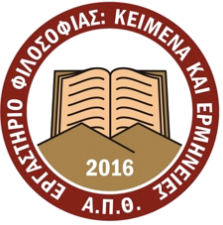Who counts as a philosopher? The case of Marcus Aurelius
John Sellars (University of London)
Abstract
In this talk I want to think about the philosophical canon by considering the case of Marcus Aurelius. Marcus was widely described as a philosopher in ancient sources and yet has often been denied that title by modern commentators. Why has he been dismissed in this way? In some cases, it is because he did not develop a philosophical system, in some cases it is because it is claimed that he did not offer arguments for his views (in fact not true), and in some cases it is because he supposedly reduced the philosophy of Stoicism to a religion. The last of these criticisms opens up interesting questions about the boundary between philosophy and religion, and what these concepts mean; there is I think a parallel here with some Western assessments of Chinese philosophy. Indeed, many of the problems affecting the assessment of Chinese philosophy apply to ancient Greek philosophy too. One of these is the application of a post-Enlightenment distinction between philosophy and religion onto material where that distinction does not neatly fit. One example is the concept of orthodoxy applied to ancient philosophical schools. Another issue here is the idea that we are dealing with a way of life, something alien to much of modern philosophy but arguably central to Greek philosophy and (I suspect) Chinese philosophy too.
John Sellars is Reader in the History of Philosophy at Royal Holloway, University of London. He has broad interests in the history of philosophy, with a focus on ancient Stoicism and his later reception. He published a monograph on Marcus Aurelius in 2021 and has recently finished editing The Cambridge Companion to Marcus Aurelius’ Meditations.His short introduction Lessons in Stoicism has been translated into a dozen languages, including Greek and Chinese.

